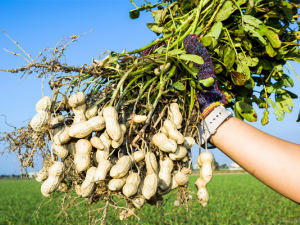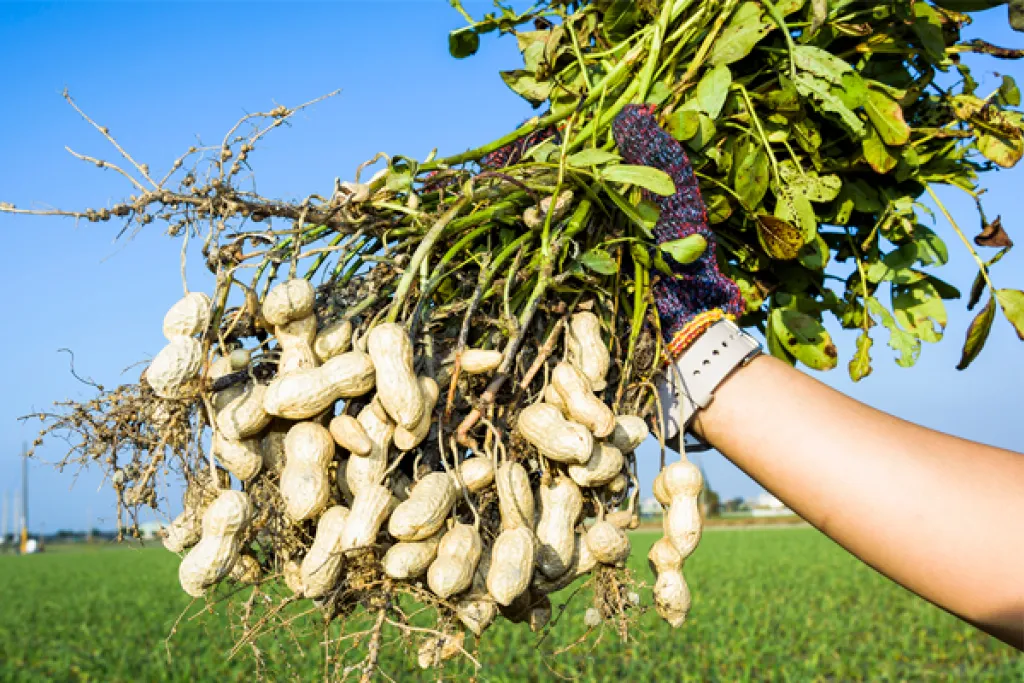
Farmer harvesting peanuts. Photo courtesy of Getty Images.
Peanuts are grown on about 42 million acres worldwide. They require temperatures of at least 56 degrees, with 86 degrees the optimal growing temperature. Higher temperatures can hurt yields. The Earth’s average yearly temperature has increased 2 degrees since the pre-industrial era of 1880-1900. This extra heat is driving up regional and seasonal temperatures.
“Reduced pollen production and viability are the major reasons for loss of peanut yields when heat stress occurs during the flowering stage,” said Zolian Zoong Lwe, who conducted the study under Narayanan’s guidance and is now a doctoral student at Kansas State University. “Understanding the mechanisms underlying the decrease in peanut pollen performance during heat stress will help develop tolerant peanut varieties.”
This study is funded by the National Peanut Board, the South Carolina Peanut Board, and USDA’s National Institute of Food and Agriculture. For more information, read the Clemson news article.
Farm Bill Priority Areas
Plant health, production, and products
U.S. States and Territories
South Carolina

